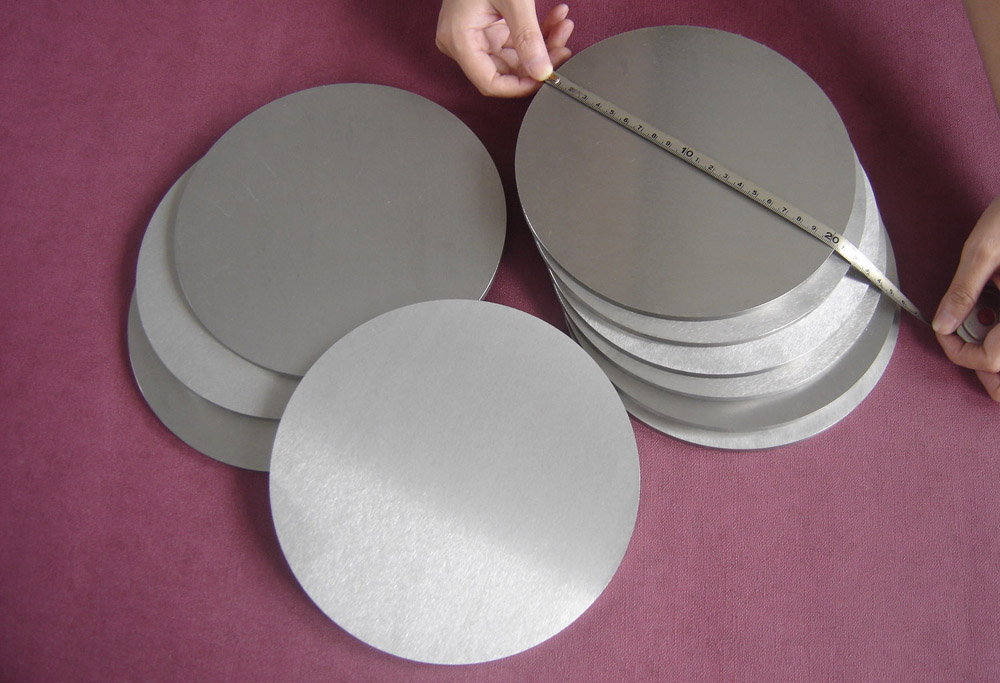Niobium Sheet | Durable, Heat Resistant Metal Sheets
Views: 25 Update date: Apr 15,2025
Niobium sheet is a flat, rolled form of the transition metal niobium (chemical symbol: Nb), known for its impressive properties, including corrosion resistance, high melting point, and superconductivity. These characteristics make niobium sheets valuable in a range of high-performance industrial applications, particularly in aerospace, electronics, energy, and medical fields.
-Excellent Corrosion Resistance: Particularly resistant to alkalis and acids such as hydrofluoric acid, niobium sheets are ideal for environments that would degrade other materials.
-High Temperature Stability: Niobium retains its structural integrity at extremely high temperatures, making it suitable for high-heat applications.
-Superconductivity: Certain niobium alloys exhibit superconductivity at cryogenic temperatures, allowing for zero electrical resistance and expulsion of magnetic fields.
-Biocompatibility: Niobium is non-toxic and well-tolerated by the human body, making niobium sheets ideal for medical implants and devices.
-Good Workability: Despite its strength, niobium is relatively easy to machine, weld, and form into complex shapes.
1.Aerospace and Jet Engines: Niobium sheets are used in the manufacture of heat shields, rocket engine components, and other parts exposed to extreme thermal conditions.
2.Electronics and Superconductors: In electronics, niobium sheets are used in capacitors and for superconducting materials in quantum computing, MRI systems, and particle accelerators.
3.Chemical Processing: The excellent corrosion resistance makes niobium sheets ideal for lining chemical reactors and heat exchangers in aggressive chemical environments.
4.Medical Industry: Biocompatible niobium sheets are used in pacemakers, prosthetics, and other implantable devices.
5.Energy Sector: Niobium is used in nuclear reactors and fuel cells due to its ability to withstand radiation and high temperatures.
Key Properties of Niobium Sheet
Niobium is a silvery-gray metal with a melting point of approximately 2,477°C (4,491°F), which is considerably higher than many other metals. When formed into sheets, niobium maintains its core mechanical and chemical properties, offering durability, flexibility, and ease of fabrication. Niobium sheets typically feature:-Excellent Corrosion Resistance: Particularly resistant to alkalis and acids such as hydrofluoric acid, niobium sheets are ideal for environments that would degrade other materials.
-High Temperature Stability: Niobium retains its structural integrity at extremely high temperatures, making it suitable for high-heat applications.
-Superconductivity: Certain niobium alloys exhibit superconductivity at cryogenic temperatures, allowing for zero electrical resistance and expulsion of magnetic fields.
-Biocompatibility: Niobium is non-toxic and well-tolerated by the human body, making niobium sheets ideal for medical implants and devices.
-Good Workability: Despite its strength, niobium is relatively easy to machine, weld, and form into complex shapes.
Common Applications of Niobium Sheet
Due to its unique properties, niobium sheet is used in various advanced technological sectors:1.Aerospace and Jet Engines: Niobium sheets are used in the manufacture of heat shields, rocket engine components, and other parts exposed to extreme thermal conditions.
2.Electronics and Superconductors: In electronics, niobium sheets are used in capacitors and for superconducting materials in quantum computing, MRI systems, and particle accelerators.
3.Chemical Processing: The excellent corrosion resistance makes niobium sheets ideal for lining chemical reactors and heat exchangers in aggressive chemical environments.
4.Medical Industry: Biocompatible niobium sheets are used in pacemakers, prosthetics, and other implantable devices.
5.Energy Sector: Niobium is used in nuclear reactors and fuel cells due to its ability to withstand radiation and high temperatures.
Fabrication and Availability of Niobium Sheet
Niobium sheets are available in various thicknesses and grades depending on the application. They are typically produced through cold or hot rolling, followed by annealing to improve ductility. Common grades include commercial pure niobium and alloyed forms such as Nb-Ti or Nb-Zr, which offer enhanced mechanical properties or superconducting performance.Conclusion
Niobium sheet is a high-performance material that stands out in industries where strength, heat resistance, and chemical stability are critical. Whether it's enabling safer chemical processing, pushing the boundaries of modern medicine, or advancing space travel, niobium sheet plays a crucial role. With increasing demand for advanced materials, the importance of niobium in sheet form is only expected to grow in the future.






